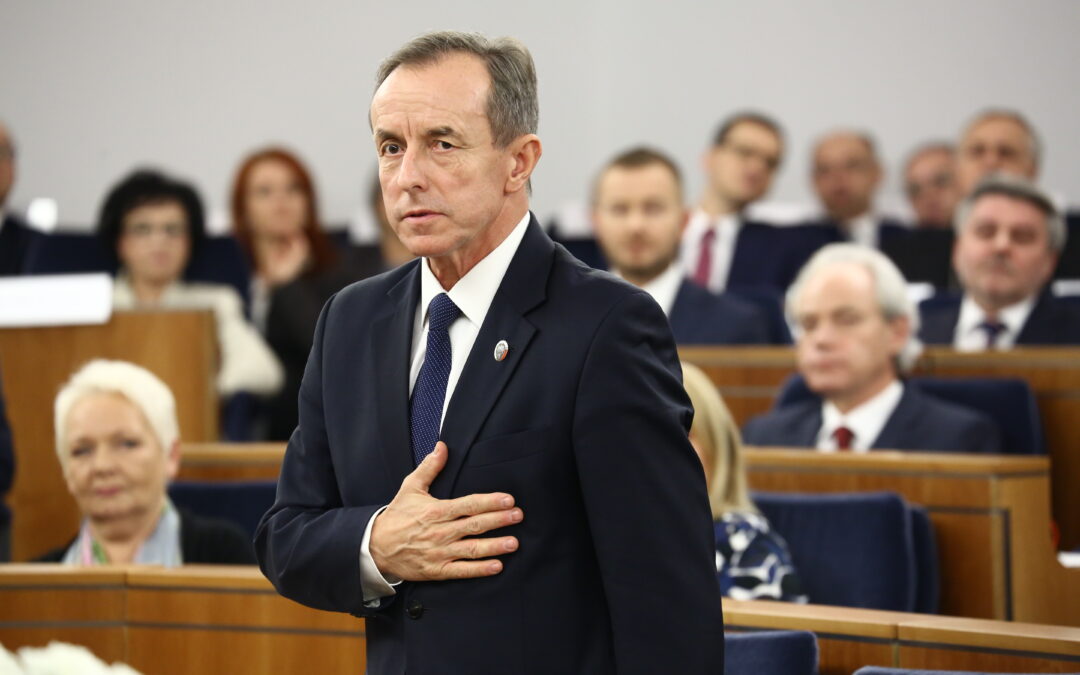Poland’s national prosecutor, Zbigniew Ziobro, who also serves as the justice minister, has submitted a new motion to waive the parliamentary immunity of the speaker of the Senate, the upper house of parliament, who is a member of the opposition Civic Platform.
Prosecutors continue to allege that Tomasz Grodzki took bribes during his time as director of a hospital in the city of Szczecin. He has denied the accusations and said people were being offered money to make false claims against him.
In March this year, prosecutors from Szczecin applied to the Senate for Grodzki – who has served as speaker since late 2019 – to have his immunity waived, which is necessary to put forward criminal charges against MPs and senators.
In response, the Senate requested supplementary information from the prosecutors. Then, in October, Grodzki’s deputy, Bogdan Borusewicz, dropped further work on the motion, arguing that it had not cleared formal requirements.
The national prosecutor’s office called the decision “unfounded”, reports the Polish Press Agency (PAP). On 26 November, the district prosecutor’s office in Warsaw launched another investigation into a possible abuse of powers linked to the Senate’s decision, reports Gazeta Wyborcza.
This week, the office of the national prosecutor submitted a new motion to waive Grodzki’s parliamentary immunity.
Prosecutors in Szczecin want to charge the Senate leader with four counts of accepting bribes ranging between 1,500 (€325) and 7,000 zloty (€1,520). They have claimed that in return for the payments, Grodzki “undertook to carry out surgery personally or to perform it quickly, as well as to ensure good medical care”.
The earliest cited accusations date back to May 2006, followed by two other documented cases in 2009 as well as a final one in March 2012. The alleged offences carry a potential penalty of up to eight years in prison in Poland.
Grodzki said that the motion had “not yet reached the Senate” and that it would be referred to the regulations committee “as soon as it arrives” if it meets all formal criteria. “There is no malice on our part,” he said, quoted by Gazeta Wyborcza.
Grodzki’s colleagues have previously called the case “obviously political” since “the prosecutor’s office is no longer independent”. Since 2016, the national prosecutor has been Ziobro, who concurrently serves as justice minister. This has led to claims from critics that the prosecutorial service has been politicised, and is used to serve the government’s agenda.
Grodzki said he would like “the prosecutor’s office of Zbigniew Ziobro to show the same zeal as when dealing with me also in other matters,” pointing to a recent report from the Supreme Audit Office (NIK) accusing the justice ministry of mismanaging hundreds of millions of zloty from a special fund intended to support victims of crime.
Main image credit: Katarzyna Czerwińska/Senat RP/Flickr (under CC BY-NC-ND 2.0)

Maria Wilczek is deputy editor of Notes from Poland. She is a regular writer for The Times, The Economist and Al Jazeera English, and has also featured in Foreign Policy, Politico Europe, The Spectator and Gazeta Wyborcza.




















